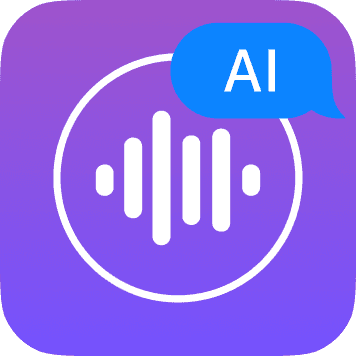
As technology continues to advance, artificial intelligence (AI) has become increasingly prevalent in our daily lives. One area where AI is making waves is in the realm of voice cloning, which allows for the creation of digital replicas of human voices. In this article, we will explore how AI voice cloning works and its potential uses, as well as the growing trend of AI clones in the creator economy and the possibility of interacting with the AI clone of your favorite celebrities and creators.
AI voice cloning: How it works and its potential uses.
AI voice cloning involves training a machine learning model on a large dataset of a particular person's voice recordings. Once the model has learned the nuances and patterns of that person's speech, it can generate new audio clips in their voice. The potential uses for this technology are vast, from creating more natural-sounding text-to-speech programs to providing voiceovers for movies and TV shows. However, there are also concerns about the potential misuse of AI voice cloning, such as impersonation and fraud. As the technology continues to evolve, it will be important to consider the ethical implications and ensure that it is used responsibly.
AI clones in the creator economy
In recent years, the creator economy has exploded, with millions of people making a living through content creation on platforms like YouTube and Twitch. With the rise of AI voice cloning, some creators are exploring the idea of creating digital replicas of themselves that can continue to produce content even after they've passed away or retired. This could have significant implications for the future of the creator economy, allowing for more personalized and engaging content that can be produced at scale. However, it also raises questions about authenticity and whether audiences will be receptive to interacting with AI clones instead of human creators.

Interacting with the AI clone of your favorite creators & celebrities
As AI voice cloning technology becomes more advanced, the possibility of interacting with the digital clones of our favorite celebrities and creators is becoming a reality. This could take many forms, from virtual assistants that sound like our favorite actors or musicians to chatbots that can engage in conversations using their unique speech patterns. While this may seem like a novelty, it has the potential to revolutionize the way we interact with media and entertainment. However, there are also concerns about privacy and ownership, as well as the potential for abuse if these digital clones are used to spread misinformation or manipulate public opinion. As with any new technology, it will be important to carefully consider the implications and ensure that it is used ethically and responsibly.
In conclusion, AI voice cloning is a rapidly advancing technology with a wide range of potential uses and implications. While it offers exciting possibilities for creating more engaging content and personalized experiences, there are also concerns about authenticity, ethics, and misuse. As we continue to explore the possibilities of this technology, it will be important to consider these issues and ensure that it is used in a responsible and ethical manner.
